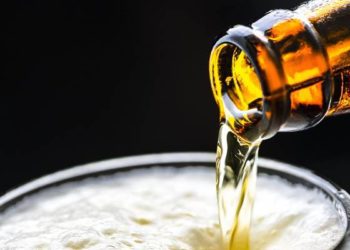Electronic Health Record data may be able to predict likelihood of Alcohol Withdrawal Syndrome among veterans
1. In this study, a majority of patients with alcohol withdrawal syndrome (AWS) had documented prior alcohol use disorder (AUD) or previous AWS.
2. Factors such as male sex, single relationship status, and homelessness, were associated with increased probability of inpatient AWS.
Evidence Rating Level: 3 (Average)
Excessive alcohol use is a major problem in the United States (US), with approximately 15-20% of patients in general hospitals having an alcohol-related condition. Among this population, one dangerous manifestation is alcohol withdrawal syndrome (AWS), which can lead to brain damage and many other complications. Early treatment for AWS is recommended, but it is unclear how to risk-stratify hospitalized patients, and few studies have examined this.
This retrospective cohort study used electronic health record (EHR) data of veterans receiving Veterans Health Administration care who were hospitalized in 2013. Participants were included in the data if they were admitted for at least 24 hours in acute or intensive care (n=209,151). Participant with multiple admissions were only included once, and participants were excluded if they did not have documented alcohol screening, were transferred from another hospital, did not speak English, or had severe AWS on presentation. Measured variables included demographic and health characteristics, as well as prior-year history of AUD or AWS.
From the adjusted and unadjusted logistic regression models, the study showed that prior AUD or prior AWS were strong independent predictors of inpatient AWS. Several factors were also found to increase the likelihood of AWS, including being single, male, homeless, or having a diagnosis of cirrhosis. Interestingly, psychiatric conditions were not associated with increased likelihood of AWS. This study was limited in that it excluded almost 60% of the initial study population, due to common problems such as inability to speak English. Nonetheless, this study furthered our understanding of those who experience severe AWS.
Click to read the study in Journal of Addiction Medicine
Image: PD
©2021 2 Minute Medicine, Inc. All rights reserved. No works may be reproduced without expressed written consent from 2 Minute Medicine, Inc. Inquire about licensing here. No article should be construed as medical advice and is not intended as such by the authors or by 2 Minute Medicine, Inc.






